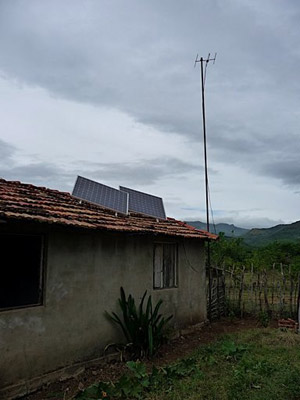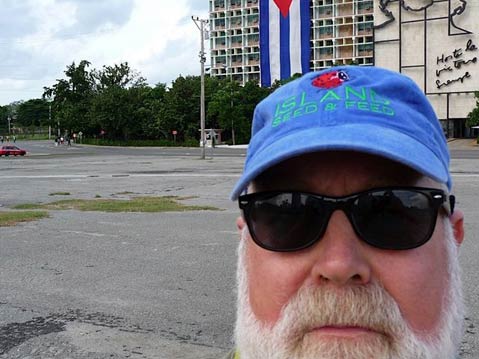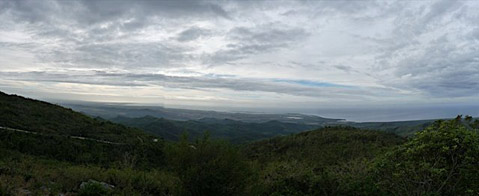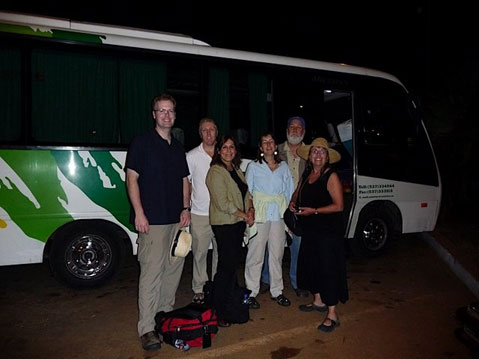Is Cuba a Jolly Green Giant?
Santa Barbara's Michael Marzolla Heads to Castro-land to Find Its Eco-Soul

While most of us were sleeping off our Thanksgiving gluttony and reluctantly emptying our wallets for the December holidays, Michael Marzolla was preparing for an ecological trek through Cuba. On November 29, Marzolla, who is the master gardener advisor for the UC Cooperative Extension in Santa Barbara, joined six other delegates for a 10-day trip through Cuba to connect with that country’s environmental educators.

Sponsored by the North American Association for Environmental Education (NAAEE), where Marzolla is cochair of the international commission, the delegates connected with key players in Cuba’s eco efforts. The trip made quite an impression on Marzolla. “What strikes you about Cubans is how incredibly organized they are,” he explained. They’re so organized, it seemed, that Cubans have a leg up on Americans when it comes to the whole “going green” thing.
According to Marzolla, Cuba has completely converted over to energy-saving lighting. “I couldn’t find a regular light bulb to save my life,” he laughed. Equally as impressive, the Cuban government has provided everyone with bio-energy refrigerators. The government is also working on technology that would push for a surge in solar- and wind-powered energy. They’ve also decentralized their power from large energy-wasting units to smaller, more efficient ones. Not only are they cutting back on the production of crude oil, they’re also drilling and pumping their own.

Marzolla and his fellow delegates also spent some time at a sustainable living center. Run by Jose Lama and Vilda Figueroa, the center provides the community with nutrition education, as well as training in cooking and urban gardening. Marzolla said you “couldn’t find anything fresher” than what was being grown in the center and throughout the trained community.
After the 1962 trade embargo led to an economic slump, Cuba faced food shortages and dietary issues. “The Cuban diet is mainly meat, rice, and beans,” said Marzolla. “When the people said they wanted to start growing their own fruits and vegetables, the government started taking vacant lots and turning them into gardens.” Since the government has limited access to pesticides, all food grown in Cuba is, by default, organic. But Cubans have a surprisingly progressive grip on food production in general.

Conservation is also getting a complete overhaul. An hour west of Havana is Las Terrazas, a huge national park frequented by tourists as well as locals. “They took bulldozers and terraced the land and reforested it,” said Marzolla. “They created model communities, sustainable living all along the beautiful San Juan River.” It was a remarkable feat, considering that had this regeneration not taken place, Las Terrazas would be a wasteland.
As far as education goes, Cuba really is trying to leave no child behind. Marzolla recounts the delegation’s trip to a school in Trinidad that had been knocked down by a hurricane. In the interim of rebuilding, the school has set up a solar energy-powered schoolhouse, complete with a computer and a television. “Even in a remote area with one student, they will make sure that student has a teacher and a school to go to,” Marzolla explained. “It really blew me away that a country that doesn’t have a lot of money would really value education. “

Cuba has universal healthcare and education, is experiencing a decrease in crime rates and homelessness, and continues to develop its public transportation system. So why is Cuba so on the ball? “The engine for decision making are the needs of the country rather than the needs of the industry,” explained Marzolla. ” I think that partly it’s because they’ve done a great job of educating people, and they feel a great sense of security. Their life is less impacted by materialism, and they maintain a great pride for their country. “
Perhaps Cuba should let us borrow their instruction manual.



